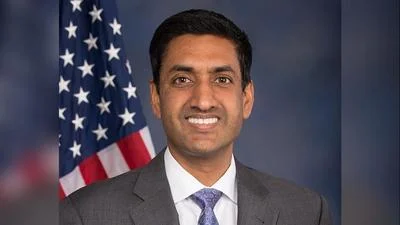John Taylor, Professor of Economics at Stanford University and developer of the "Taylor Rule" for setting interest rates | Stanford University
John Taylor, Professor of Economics at Stanford University and developer of the "Taylor Rule" for setting interest rates | Stanford University
Zeid Ra’ad Al Hussein, president and CEO of the International Peace Institute (IPI), former United Nations High Commissioner for Human Rights, and the first President of the Assembly of State Parties to the Rome Statute of the International Criminal Court (ICC), received the Jackson H. Ralston Prize in International Law at Stanford Law School (SLS) on May 23. The prize recognizes original and distinguished contributions to the development of the role of law in international relations and the furtherance of international peace and justice.
Zeid’s record includes a distinguished career as a Jordanian diplomat, serving as Jordan’s Permanent Representative to the United Nations and as Jordan’s ambassador to the United States. In 2014, he was named the sixth United Nations High Commissioner for Human Rights, becoming the first Asian, Arab, or Muslim to hold that post. In 2002, he was elected as the first President of the Assembly of State Parties of the ICC.
During his visit to SLS, Zeid engaged in a conversation with Assistant Professor Gulika Reddy, director of SLS’s International Human Rights and Conflict Resolution Clinic. They discussed his career path, global human rights challenges, and topics related to international human rights. Later that day, he delivered an address titled “Memory and Moral Consistency,” where he argued that countries' failure to reckon with their pasts has impeded human rights advancement globally.
“When looking at the global human rights picture today, it is almost impossible to disentangle the laws relating to rights from their historical contexts or to ignore the failure of almost all countries to properly reckon with their pasts,” Zeid said during his speech.
Allen Weiner, director of both Stanford Program in International and Comparative Law and Stanford Humanitarian Program, introduced Zeid at his address. Zeid began by recounting a story about his grandfather's involvement in quelling a rebellion in Damascus during the 1920s.
“All of us, if we go back far enough in our family histories, will come across accomplishments big or small to admire, and most probably demons to recognize,” Zeid remarked. He highlighted how nations often gloss over violent chapters in their histories contributing to tribalism and extreme nationalism.
“Western governments are especially accused by other states of being quick to condemn adversaries while excusing friends,” he noted. “All states practice double standards... I saw it in Syria and Yemen.”
Zeid also criticized the United Nations for its failure to address contested histories effectively. “The UN... still believes peacebuilding is best achieved by throwing cement at problems: rebuild infrastructure and hope reconciliation follows.”
As head of IPI, Zeid works on strengthening inclusive multilateralism globally by aiding cooperation among governments, NGOs, and private sectors on issues like climate change and pandemic preparedness. He also serves as Perry House Professor at University of Pennsylvania.
Other notable recipients of Ralston Prize include former UN High Commissioner Louise Arbour; former U.S. President Jimmy Carter; former U.S. Secretary Warren Christopher; Nobel Laureate Shirin Ebadi; former FBI Director Robert Mueller; former Senator George Mitchell; anti-apartheid campaigner Helen Suzman; Czech Republic President Vaclav Havel; Canadian Prime Minister Pierre Trudeau; Costa Rican President Oscar Arias Sanchez; Singaporean Ambassador Tommy Koh.
The Jackson H. Ralston Prize honors significant contributions toward international peace through law development broadly encompassing arbitration diplomacy international organization among others promoting world order.
Stanford Law School is recognized for its legal scholarship education producing influential alumni faculty members contributing significantly within various spheres including Supreme Court testimonies congressional hearings media insights public service advocacy.




 Alerts Sign-up
Alerts Sign-up